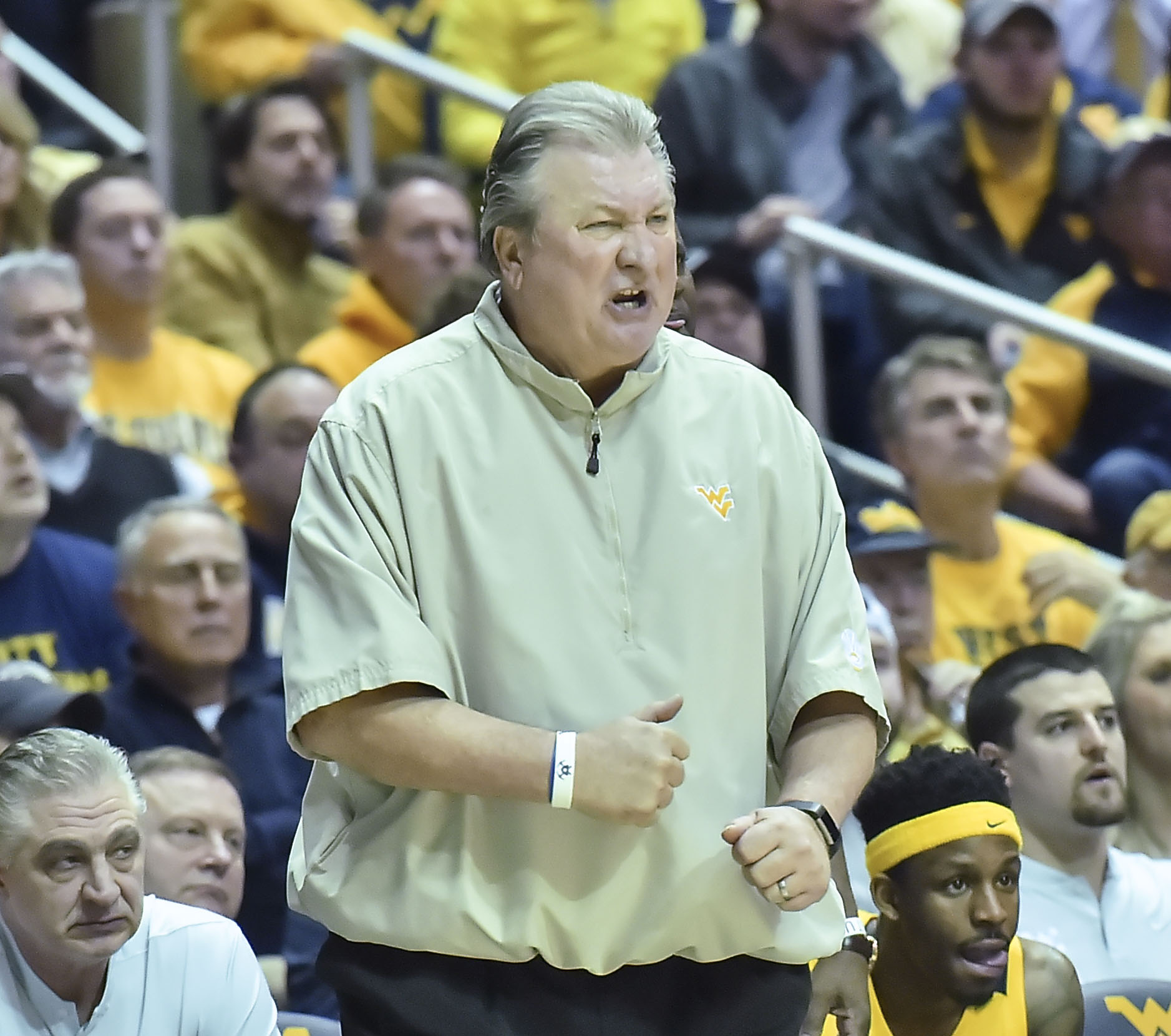MORGANTOWN, W. Va. — Through last-second schedule changes caused by the COVID-19 pandemic, 11th-ranked West Virginia has already had an early dose of living life on the road.
Sunday’s game at Georgetown (1-1) marks the Mountaineers (3-1) fifth straight game away from Morgantown to begin the season.
The last time that happened was 1999, when asbestos was being removed from the Coliseum and WVU was forced to play home games in Fairmont, Wheeling and Charleston.
And if that was a strange season, one more under a virus pandemic may be equally as unusual.
WVU does have three consecutive home games scheduled following Sunday’s game in the Big East-Big 12 Battle — against Robert Morris, No. 19 Richmond and Iowa State — but the Coliseum will not be open to fans during the month of December, according to WVU officials.
“Obviously, what makes the difference if we’re not going to allow fans here?” WVU head coach Bob Huggins said. “Usually I want to play as many games here so that our fans can see us play. Now it doesn’t matter, really.”
In all, the Mountaineers will play 14 of their 27 scheduled regular-season games away from home.
Getting used to abundance of road games could come in handy down the line, when WVU travels to the Big 12 and NCAA tournaments. But, Huggins also knows there is a flip side, which includes the local economy.
“I think our fan base has grown, which is great for our basketball program, but it’s also been great for Morgantown,” he said. “It’s been great for the economy. You put 14,000 people in here and generally they stop and get a bite to eat or whatever. We miss that.
“I know people will take shots at me saying, ‘Well, you really don’t care about the virus,’ which is absolute B.S. You look at our guys. Our guys are playing, because they’ve done the right things. They’ve stayed home. They’ve done everything that’s been asked of them and more. So, that obviously isn’t true.”
Moving the ball
After sorting through a stack of papers on his desk, Huggins eventually found what he was looking for.
“I’ll give you a stat here, if I can find it,” Huggins began.
On the sheet was a list of West Virginia’s field goal percentage based on the number of passes WVU players had thrown in each possession.
“Three or less passes, we’re 15 for 36,” Huggins said. “Four or more passes, we’re shooting 60 percent. We’ve only passed it four or more times five times in a game. That’s alarming. We’ve got to pass the ball. We’ve missed open guys and, obviously, we dribble the ball too much.”
The stat comes into play, Huggins said, when looking at a player such as WVU’s Emmitt Matthews Jr.
The junior forward is playing nearly 22 minutes per game, but has only attempted more than five shots in a game once this season.
Yet, he’s shooting just 37% from the field, which would make you think he’s struggling with his shot or not being aggressive enough offensively.
“It’s hard to be aggressive when you don’t get the ball,” Huggins said. “You look at Derek’s (Culver) numbers, Derek is scoring off the offensive glass. We’re not throwing it to Derek as much as we need to. We’re not throwing it to Oscar (Tshiebwe) as much we need to.”
Phone call from dad
As far as West Virginia’s rotation of players goes for future games, Huggins said he was looking for the most productive players.
He made his point from relaying a phone call he took from his father, Charlie, while Bob was a player at WVU in the 1970s.
“I sat on the bench for a little bit while I was a sophomore here and my dad called me,” Huggins began. “He said, ‘What are you doing?’ I told him I was sitting on the bench and started giving him an excuse. You know what he said to me? ‘Hey, boy, if you want to play more, play better. The better you play, the more you play.’ He said that to me and then hung up.
“That’s the reality. We’re not going to play bad players.”
TWEET @bigjax3211




